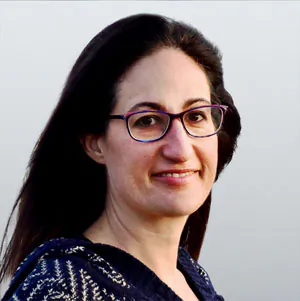Are We Headed Toward a Genderless, Sexually Dysfunctional World?
Commentary
On May 5 and 6, I attended a therapy training conference with one of the leading organizations in mental health, The California Association of Marriage and Family Therapists. This event attracted hundreds of therapists from throughout the country. I took several courses and will be writing a series of essays on my observations, thoughts, and impressions.
I attended the conference to have in-person interactions with colleagues and to learn firsthand what is happening in my profession.
One class was titled “From Unwanted Pain to Sexual Pleasure: Common Health Concerns Impacting People With Vulvas.” It was a class on sexual dysfunction for women.
The first part of the class was about erasing binary language and how terribly binary our world is. The instructor, Dr. Mia Fine, Ph.D., LMFT, CST-S, CSE, said there are as many genders as there are stars, like the constellations. She explained that the word “guys” is problematic because you never know who you are talking to.
She had a new definition of “woman”: “A person who identifies as a woman. Women can be trans women or cis women.”
She had a slide that stated, “Language is constantly evolving … please allow me to evolve too.”
However, this is not how language evolves; it’s how language is censored, bastardized, and compelled.
Dr. Fine described how our brains have neuroplasticity and practicing inclusive language rewires the pathways of the brain. This term, “neuroplasticity,” is usually reserved for when we learn a new foreign language or a new skill, not when we are erasing cultural norms and changing how we think to create a totalitarian society.
I felt uneasy, especially because other people in the class already used these terms with ease. They’ve had practice.
When the woman next to me asked a question about “people who were assigned female at birth,” I was squeezing my “woman—adult human female” keychain, purchased from Kellie Jay Keen’s online store. (I make an appearance in KJK’s film, Kellie Jay in the USA.)
I raised my hand and asked a question about the link between autism and asexuality. The instructor thought my comment was insightful and wanted me to repeat my question with a microphone. She said she didn’t want to speak for “this person” (referring to me) and handed me the mic so the class could hear my question.
The first thing I said into the microphone was, “I am a woman.” Then I proceeded to make my comment. I had to make that declaration. I didn’t do it to be combative or make a big statement, but simply to ground myself because this environment was making me unsettled. My statement about being a woman was ignored.
Despite these gender-fluid messages I strongly disagreed with, I felt comfortable with the instructor. She had a kind and openhearted demeanor. She allowed time for questions throughout the talk. Her tone was vastly different from that of the trans activists who led the gender affirmative care for children workshops I had attended the day before, who did not allow any discussion.
She was also pretty, fit, and well dressed. These descriptions are important because I don’t see her as an enemy. Despite her misguided instruction, she seemed to care about the audience and her clients whom she spoke about.
The rest of the class was about different sexual disorders and reasons women may have challenges sexually. It offered techniques and clinical ideas on how to address them. In that way, the class seemed factual and had useful clinical ideas.
After the class, my friend was texting me about my experience and I sent her a screenshot of the title of this one and explained what it was about. My friend asked if it was normal for so much talk about sex and sexual dysfunction to be in therapy conferences in the past. I said no.
At first I simply linked this shift to therapists’ belief that this topic needs to be talked about to reduce the stigma, and their desire to discuss more taboo topics.
Then I thought deeper about it.
That night, I woke up with racing thoughts. I realized how in the near future, more people are going to have significant sexual dysfunction.
Dr. Fine normalized kink, multiple partner scenarios, and other types of sex which lead to trust issues, desensitization, and sexual assault. She spoke about those alternative sexual scenarios in an ideal way and left out real-life consequences.
She offered tips on how to debrief and do self-care after an intense sexual experience so that it will all be okay, but she never discussed how these acts could be physically and psychologically damaging.
She also didn’t mention the negative impacts of hook-up culture, abortion, the birth control pill, the cultural push to eradicate traditional families, screen addictions, sexualizing children with graphic content in schools and drag shows, early exposure to porn, harmful impacts of cross-sex hormones and sex-reassignment surgeries, how dissociated many women are from their bodies and how this all could be a pathway to trans-humanism.
She did at least acknowledge how antidepressants can permanently lower libido, so Big Pharma got a mention.
My nightmare was of a sexless, over-medicated, dysfunctional, and unstable society. I realized this class wasn’t for a niche population with sex issues; it is a prediction of a dystopian future if our culture keeps going in this direction. It’s up to all of us to prevent this.
Views expressed in this article are the opinions of the author and do not necessarily reflect the views of The Epoch Times.

